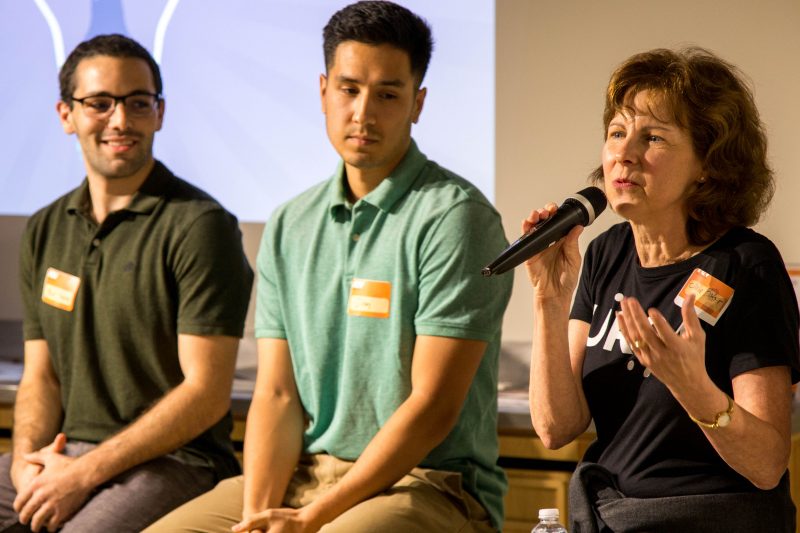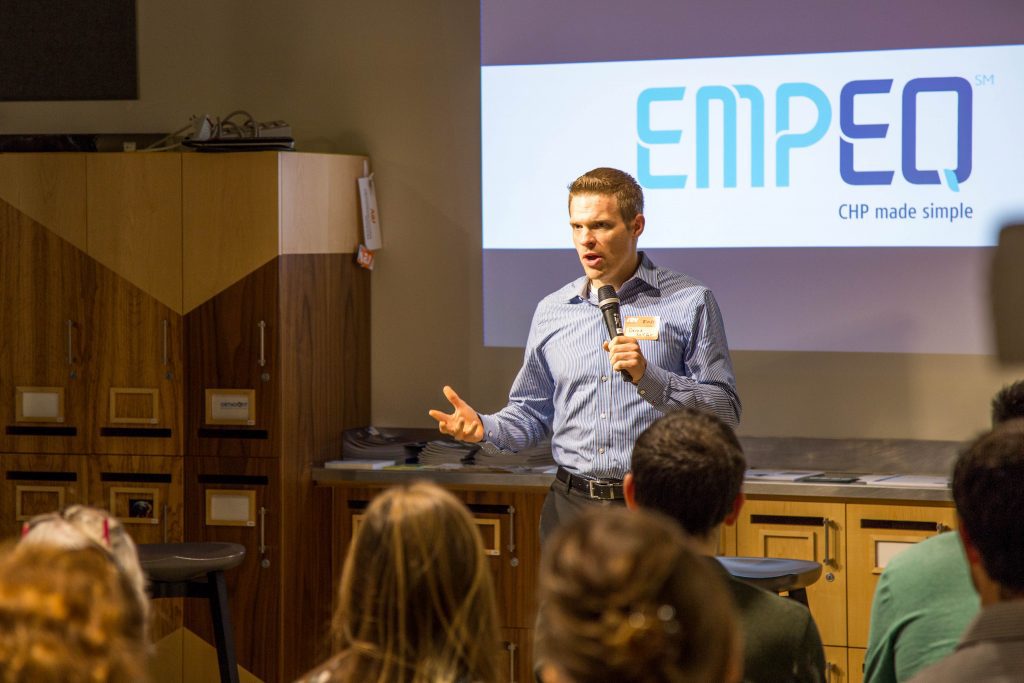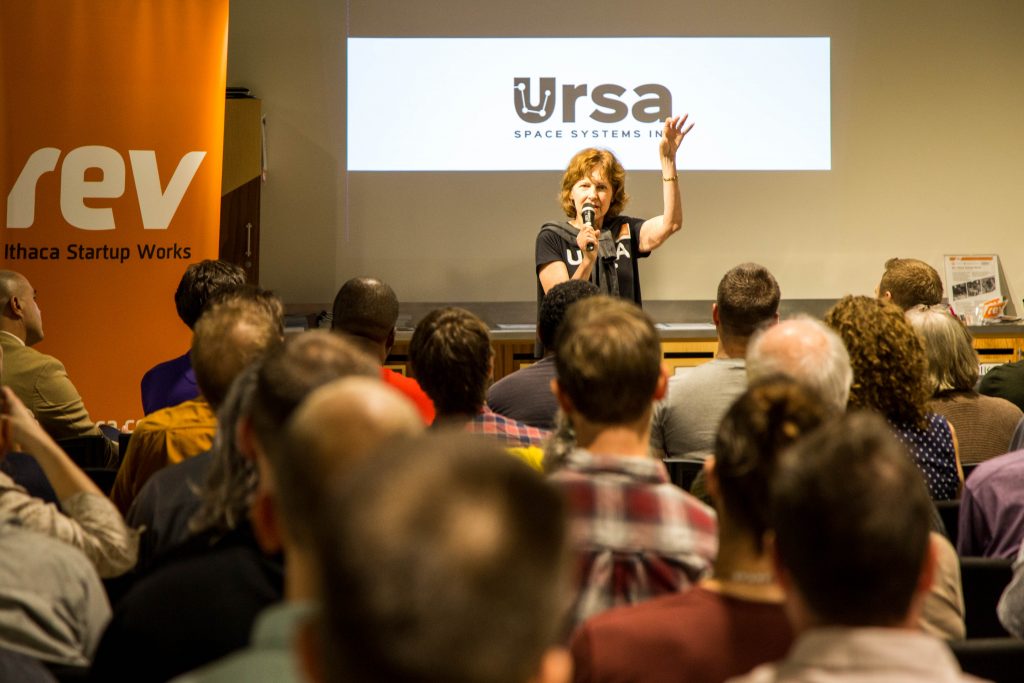
Failures that Inspire
The theme of September’s networking night at Rev: Ithaca Startup Works focused on an important, but none too obvious, stepping stone on the path to success: failure. “Failures that Inspire” featured three Rev startups whose trajectories seemed to come to an end until they shifted focus to find the right niche for their companies.
“Figuring out that you’re barking up the wrong tree is also a success,” said Tom Schryver, executive director of Cornell’s Center for Regional Economic Advancement and panel moderator. Attendees of the September 21 event learned how panel members’ stumbles were, in fact, useful experiences to make their businesses stronger.
PUPP Seating
Co-founders Nathaniel Fisher, Bar Stern, and Dominick Pirozzi developed the Pressure Ulcer Prevention Pad (PUPP), which uses cycles of inflation and deflation to relieve pressure on the limbs of wheelchair-bound persons.
The problem: Hospitals, to which PUPP was making its pitch, weren’t interested in the product because most of their patients were not in wheelchairs.
The fix: PUPP redirected its efforts to long-term care facilities, such as nursing homes, where patients are often in wheelchairs for significant periods of time.


EMPEQ
When founder Derek LaClair MBA ’14 created a product to assist businesses in upgrading their commercial space to become more energy efficient, complete with financing for his customers, it seemed to be a no-brainer that business would be booming.
The problem: With an initial focus on LED lighting, LaClair met with contractors – the intermediaries between his company and its customer base – who assured him there would be big demand for EMPEQ’s services. Out of a pipeline of 50 potential customers, though, the market wasn’t moving.
The fix: EMPEQ went through its customer discovery process anew, this time going straight to its customer base and skipping the intermediaries, and found that the best use for its product was in combined heating and power (CHP), rather than lighting.


Ursa Space Systems
Co-founders Adam Maher ’06, MENG ’07, Derek Edinger ’94, MENG ’95, and Julie Baker sought to build and utilize their own radar satellites, radar having an advantage over optical satellites to see through clouds and at night.
The problem: The team was trying to do it all: build their own satellites, create their own software, and perform analytics. Investors and customers didn’t want to wait five years until the company’s satellites were in orbit.
The fix: Ursa founders realized that no company does it all and decided to use existing commercial satellites rather than manufacture their own, allowing them to focus on software and analytics.
Rev’s next networking night will be October 24 with the theme “Growing Past 25 Employees”. Find more info and RSVP Here.
